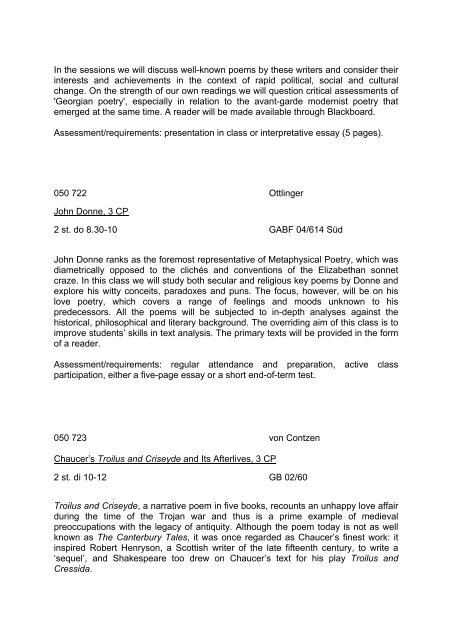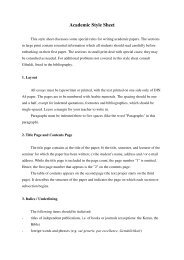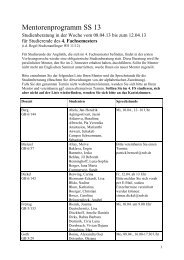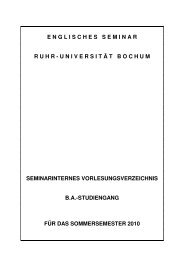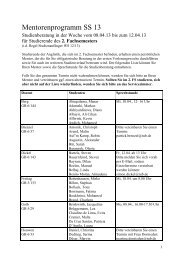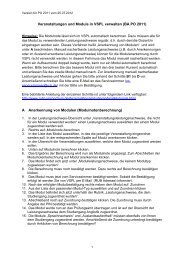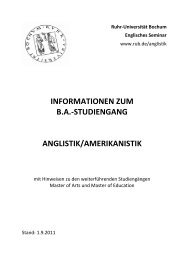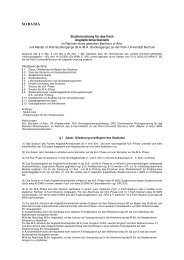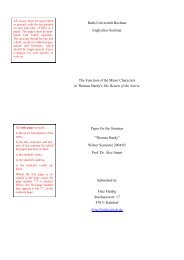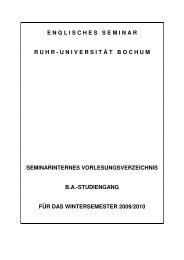Englisches Seminar - Ruhr-Universität Bochum
Englisches Seminar - Ruhr-Universität Bochum
Englisches Seminar - Ruhr-Universität Bochum
Create successful ePaper yourself
Turn your PDF publications into a flip-book with our unique Google optimized e-Paper software.
In the sessions we will discuss well-known poems by these writers and consider their<br />
interests and achievements in the context of rapid political, social and cultural<br />
change. On the strength of our own readings we will question critical assessments of<br />
'Georgian poetry', especially in relation to the avant-garde modernist poetry that<br />
emerged at the same time. A reader will be made available through Blackboard.<br />
Assessment/requirements: presentation in class or interpretative essay (5 pages).<br />
050 722 Ottlinger<br />
John Donne, 3 CP<br />
2 st. do 8.30-10 GABF 04/614 Süd<br />
John Donne ranks as the foremost representative of Metaphysical Poetry, which was<br />
diametrically opposed to the clichés and conventions of the Elizabethan sonnet<br />
craze. In this class we will study both secular and religious key poems by Donne and<br />
explore his witty conceits, paradoxes and puns. The focus, however, will be on his<br />
love poetry, which covers a range of feelings and moods unknown to his<br />
predecessors. All the poems will be subjected to in-depth analyses against the<br />
historical, philosophical and literary background. The overriding aim of this class is to<br />
improve students’ skills in text analysis. The primary texts will be provided in the form<br />
of a reader.<br />
Assessment/requirements: regular attendance and preparation, active class<br />
participation, either a five-page essay or a short end-of-term test.<br />
050 723 von Contzen<br />
Chaucer’s Troilus and Criseyde and Its Afterlives, 3 CP<br />
2 st. di 10-12 GB 02/60<br />
Troilus and Criseyde, a narrative poem in five books, recounts an unhappy love affair<br />
during the time of the Trojan war and thus is a prime example of medieval<br />
preoccupations with the legacy of antiquity. Although the poem today is not as well<br />
known as The Canterbury Tales, it was once regarded as Chaucer’s finest work: it<br />
inspired Robert Henryson, a Scottish writer of the late fifteenth century, to write a<br />
‘sequel’, and Shakespeare too drew on Chaucer’s text for his play Troilus and<br />
Cressida.


